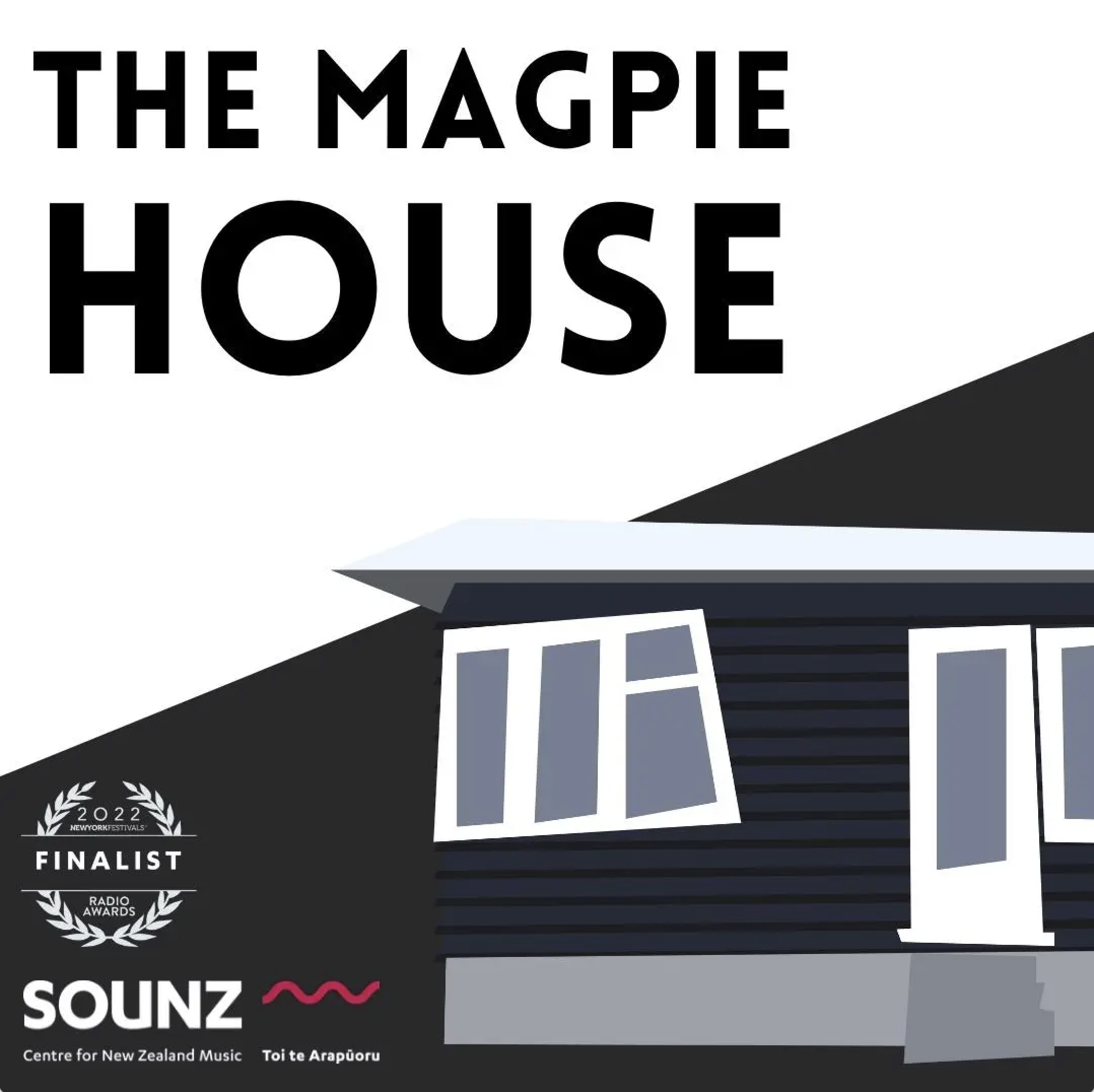Episode 3
On Christmas Day 1959, Douglas Lilburn moves into the Magpie House at 22 Ascot Terrace. It’s slightly over ‘teacup throwing’ distance from the cottage of his longtime friend—and onetime lover—Rita Angus on Sydney Street West, and everywhere he needs to be is within walking distance: the University is a brisk hike up the hill through the Botanic Gardens, and Broadcasting House—where he spends a fair bit of his time—is a short wander down towards Parliament. But perhaps best of all, the Magpie House offers privacy, a peaceful patch of garden, and a generous living room in which to entertain guests.
“Douglas would install himself in his easy chair, at the vortex of his living room with a fire going…overlooking the valley there. And then he would bring out wine, and you’d talk and talk and talk.”
In the late 1950s Douglas Lilburn is at a crossroads musically. The horrors of World War Two had drastically changed the face of classical music; structures and conventions that had been in place for hundreds of years had gone out the window in favour of serialism, atonality, extended instrumental techniques, and innovative experimentation. All of this occurred at a time in which there was very little international exchange, and it isn’t until Lilburn takes a sabbatical to visit institutions in Europe and the USA that he realises how out of touch he has become:
“[The trip was] in many ways, a painful experience. I realized acutely how provincial and inadequate my musical knowledge and composition technique were in the face of the new musical context I found there.”
Lilburn’s compositional output at the time is drawing divided opinions. His musical language has begun to drift away from tonality, and his active exploration of techniques such as serialism has led him to a sound that is distinctly modern. Players from the New Zealand Symphony Orchestra famously refuse to perform a brass quartet that he writes for them, and a critic describes his orchestral work A Birthday Offering as “really rather rum”. A letter to the editor from an audience member decries that, “Mr Lilburn seems to me to have nothing to say and does so at the top of his voice”.
Eventually, Lilburn’s experiments with portable tape recorders lead him to discover the machines that are destined to fascinate and terrify him for the rest of his career, and he becomes excited about the new possibilities that technology opens up. After another overseas sabbatical, he returns to New Zealand and establishes the Electronic Music Studio at Victoria University.
Douglas Gordan Lilburn was a very private man, and in this episode we invade a little of that privacy. With the help of those who knew him well, we peek into the living room where he held court with aspiring young composers, and into the music room where he had a crisis of confidence. We march up the hill to the University for a squiz at the machines he became obsessed with, and we look over his shoulder as he writes letters to his dear, lifelong friends Rita Angus and Douglas McDiarmid.
Host: Kirsten Johnstone
Guests: Chris Cochran, Philip Norman, Jill Trevelyan, Jenny McLeod, Margaret Neilsen, Ross Harris, Noel Sanders, Bruce Greenfield
Music in this episode
Jonathan Besser/Ross Harris: Homage to Len Lye
Joseph Canteloube: ‘Bailero’ from Songs of the Auvergne
Rosa Elliot: Landfall
George Fraser: Misty Moon
Ross Harris: Memory – Funny
Douglas Lilburn: Canzonetta No. 1 + 2 for violin and viola
Douglas Lilburn: Prelude No. 2
Douglas Lilburn: Drysdale Overture
Douglas Lilburn: Allegro for Strings
Douglas Lilburn/Denis Glover: The Magpies
Douglas Lilburn: Three Inscapes, I
Douglas Lilburn: Five Toronto Pieces (1963), IV Sings Harry
Douglas Lilburn: Sonatina No. 2
Douglas Lilburn: Symphony No. 3 (NZSO recording from 60 years ago when it was the National Orchestra of NZBS)
Douglas Lilburn: The Return
Jenny McLeod: 24 Tone Clocks I, II + XXI
Larry Pruden: Harbour Nocturne
For additional information on the music in this podcast, please click here.
Production team
Producer: Kirsten Johnstone
Research and Interviews: Jane Tolerton ONZM
Sound Engineer: Phil Brownlee
Script Advisor: Melody Thomas of Popsock Media
Production Assistance: Roger Smith, Jonathan Engle, Karlo Margetić, Alpana Chovhan, Nina Lesperance, Aimee Somerville
Executive Producers: Diana Marsh, Leoné Venter, Eva Radich
Special thanks to
RNZ Concert
The Lilburn Residence Trust
The Lilburn Trust
The Denis Glover Literary Estate
Ngā Taonga Sound and Vision
Atoll Records
Rattle Records
Ode Records
Performers in the podcast music excerpts
Cover Art: Kennedy Kioa Toi Faimanifo of Manatoa Productions
This podcast is supported by funding from Creative New Zealand.
© Copyright Centre for New Zealand Music Trust
